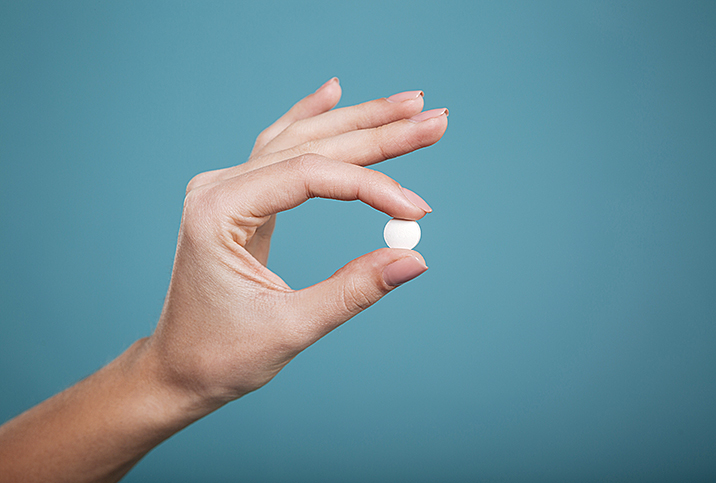Let's Get Hypersexual: How to Feel Empowered Having Neurodivergent Sex

I was diagnosed with ADHD at the age of 23. Defined as a "developmental impairment of the brain's executive functions," ADHD, or attention deficit hyperactivity disorder, affects 11 percent of children and 5 percent of adults in the US. Realizing that I struggled with impulse control, focus, organization and emotional regulation, I referred myself for an assessment through Psychiatry UK and after six months of waiting, was told: "You have ADHD." Those three words were so validating: after years of struggling, I was relieved. I finally had answers.
Now, I'm 24, and what I wasn't expecting when I received my diagnosis was the existential realization that my sexuality and my ADHD had been linked for years—I just hadn't perceived a link. I've been sexually active since I was 16 and I've struggled to find my sexual flow. I've flitted manically between episodes of hyposexuality, or reduced libido, and hypersexuality, an overactive or almost excessive desire for sex. I've struggled with my self-esteem, becoming so consumed by all-encompassing hatred for my body that I've closed myself off to sexual contact, and I've experienced emotions so heightened that sex and relationships have been almost arduous. I never thought I'd win.
A little-explored relationship
In a sexual setting, ADHD can manifest through hyposexuality, hypersexuality, an inability to concentrate or sexual impulsivity. Examples of the latter include engaging in hook-ups or risky sexual activity such as unprotected sex.
Justin Lehmiller, Ph.D., an Indiana-based sex and psychologist expert, explained, "On average, people with ADHD tend to be more sexually eager," but critically, "ADHD can be linked to lower sexual interest and lower impulse control, which could potentially cause early orgasm, as well as distraction issues which could potentially cause a delayed orgasm."
"ADHD is one variable among many, including hormones, that influences libido," said Megan Fleming, Ph.D., a New-York based clinical psychologist specializing in sexuality and relationships. "Factors like length and phase of the relationship are also incredibly important. Two main symptoms of ADHD are difficulty focusing and the ability to hyperfocus. These often express themselves along a continuum of hyposexuality to hypersexuality."
I've been with my boyfriend for two years now, and when we met, I was in the depths of hypersexuality. In my early 20s, I was beginning to undo my internalized shame surrounding masturbation and sex toys and was starting to explore my body. I began to develop new sexual preferences, culminating in a heightened libido which was almost exhausting. I'd never been one for one-night stands or sexual impulsivity, but suddenly, I had a voracious sexual appetite. I'd found my voice.
A year into our relationship, this changed. The script flipped: after I reverted to the antidepressants I'd relied upon as a teenager, my libido was suppressed, and I struggled with hyposexuality. Where I was once filled with energy, I now became a recluse. Nothing interested me and almost nothing could entice me into wanting to engage in sexual acts, either alone or with my partner. Sex felt like a chore, and I felt ashamed. It was something I'd nurtured: it had taken me years to understand it, and importantly, to connect with it. I'd discovered myself and then I'd lost myself along the way.
And I'm not alone.
Beth, 30, works in the United Kingdom in marketing and social media. Beth was diagnosed with ADHD at 27. Before her diagnosis, she struggled with sexual impulsivity.
"Sex is one of the most intimate and emotionally charged actions we do as human beings. Before I was diagnosed and on regular medication, sexual impulsivity was a problem for me. I didn't care who I hurt - I just had to make sure my needs were met," she said.
Like me, Beth is now experiencing the other end of the spectrum. "Sex doesn't interest me now—my libido is almost non-existent. I don't like to be touched at all, probably because I associate sex with a time of my life when I felt so misunderstood," she said. "I've spent the last year on a journey of learning to love myself and my body and that has really shown me the importance of solo sex. I've been taking the time to learn what I like sexually, investing in some solo sex toys and a good porn subscription."
But some of ADHD's effects on sex are more granular. Emma, 27, also from the UK, struggles with auditory sensitivity and processing issues, rendering it difficult for her to stay concentrated during sex. "I find pillows distractingly noisy, to the point that it can be challenging to hear what my partner is saying. Drifting thoughts can range from a slight inconvenience to a total mood-killer, depending on where they go," she said.
Similarly, Nyxie, 29, gets bored during sex, prompting her mind to wander. "Even if I am in the mood, it can be difficult for me to not get bored with what my husband and I are doing. It's almost like sex is a 'just get it done' scenario," she said. "Sex games, toys and lube are great, especially if you find it difficult to get into and stay in the mood. I'm always open and honest about what I'm experiencing."
How to feel empowered
Fleming said for those feeling little to no desire to have sex, "there's significant distress around sexuality, feeling you either want it too much or too little. Sex doesn't always come from a place of wanting. There's an equally valid pathway to desire that's not spontaneous, but responsive."
"The biggest thing is to recognize personal potential for impulsivity or risky behaviors so that you have strategies to implement that keep you and your partner safe," she continued. "Discuss turn-ons, fantasies, peak experiences and favorite positions with your partner. Explore the ways that you both can get your needs met, and then you will be in flow."
For me, half the battle was admitting to myself that it was okay for my libido to fluctuate. Communicating with my partner about my hyposexuality was so validating after months of internally berating myself, believing that I was the problem. All along, there was no issue. Now, I know that whether I'm experiencing a heightened or a lowered libido, my sexuality remains valid. There is nothing wrong with me. It's just another beautiful part of living with ADHD, and oddly enough, it's empowering.


















